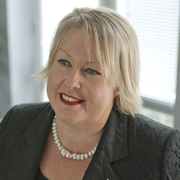Human flourishing is a concept at the core of the SDG declaration and their aim to ensure that 'all human beings can fulfil their potential in dignity, equality, and in a healthy environment.' As Wendy Purcell notes in her insightful piece for this page, flourishing is "about the opportunity to thrive. Anyone can flourish, but it's clear not everyone is doing so – hence the pursuit of the global Agenda 2030 that seeks to create a world where 'no one will be left behind'"[1].
What makes life worth living? What does living a 'good life' really mean? Are we overlooking the importance of the ability to thrive in our quest for narrow health outcomes? These are the kind of questions which now seem crucial to address in a post-Covid world, where the ability to flourish, and not merely survive, should become the benchmark for a fair society.
Here we have brought together some of our authors, articles and books to examine ideas around human flourishing, thriving and well-being. We also are pleased to be publishing the first post from our Fairer Society Goal Advisor, Wendy Purcell, and the work of some of her colleagues at the Harvard Human Flourishing Program, and the Sustainability and Health Initiative for NetPositive Enterprise (shine).
[1] https://odi.org/en/publications/leave-no-one-behind-five-years-into-agenda-2030-guidelines-for-turning-the-concept-into-action/
https://sdgs.un.org/2030agenda
On this page
- Featured blogs
- Free access to our articles, & author videos & blogs
- Different routes to publication
- Additional information
- Talk to us about your work
- Mission-led research – our goals
If you have research in fields related to Human flourishing in a fairer society, we would love to hear from you, so please get in touch with us.
This mission is aligned with our Fairer society goal

Free access to our articles, & author videos & blogs

Different routes to publication
If you would like to contribute to the discussion, take a look at our different routes to publication and contact us to get involved.

Additional information

Further insights
An article, recently published in the International Journal of Social Economics found that while having children typically increases life satisfaction, this was not the case among working parents, especially mothers and those with younger children attending primary school.
The study highlights the need for family policies and support for these parents, in line with economic strategy and labour market goals.
Examining the nuances of life satisfaction among working parents is an infographic examining the impact of having children on the life satisfaction of mothers and fathers, working parents, and those with children of various ages.
Download the infographic (PDF)
What's in the infographic
Examining the nuances of life satisfaction among working parents
Working parents experience a high demand on their time and finances; balancing their personal and professional life is often difficult
Data from the European Social Survey of 2006/07, 2010/11 and 2016/17 in Ireland showed that:
- 60% of all parents are employed
- 81% of all fathers
- 46% of all Mothers
- 39% of households have both parents working
- 25% Parents find it difficult to live on their present income
- 7.11/10 Average life satisfaction among Irish parents (marginally higher among fathers compared to mothers)
Statistical analysis of the data suggests:
Having primary school-going children up to 12 years old:
- Increases life satisfaction among parents in general
- Is negatively associated with life satisfaction among working parents, especially if both are working
Working mothers report significantly reduced life satisfaction.
Economic recession and financial difficulties lower the parents’ life satisfaction.
Parents who have difficulty managing their incomes are associated with lower satisfaction levels than those 'living comfortably'.
Purposeful family policies and support can help improve working parents’ individual well-being while being consistent with economic strategy and labour market goals.
Life satisfaction amongst working parents: examining the case of mothers and fathers in Ireland
International Journal of Social Economics
Walsh, E. and Murphy, A. (2021) DOI: 10.1108/IJSE-05-2020-0295
Talk to us about your work
We really welcome insights not only from researchers but practitioners too about their work.
If you would like to contribute to the discussion, or you are working on research in areas related to human flourishing in a fairer society, please let us know by filling in this form.

 Dr Wendy Purcell, Harvard T.H. Chan School of Public Health, Harvard
Dr Wendy Purcell, Harvard T.H. Chan School of Public Health, Harvard Donna Hicks, Associate of the Weatherhead Center for International Affairs, Harvard
Donna Hicks, Associate of the Weatherhead Center for International Affairs, Harvard Eileen McNeely, Executive Director Sustainability and Health, T.H. Chan School of Public Health, Harvard
Eileen McNeely, Executive Director Sustainability and Health, T.H. Chan School of Public Health, Harvard Heloisa Jardim, Research Manager at SHINE, Harvard
Heloisa Jardim, Research Manager at SHINE, Harvard










